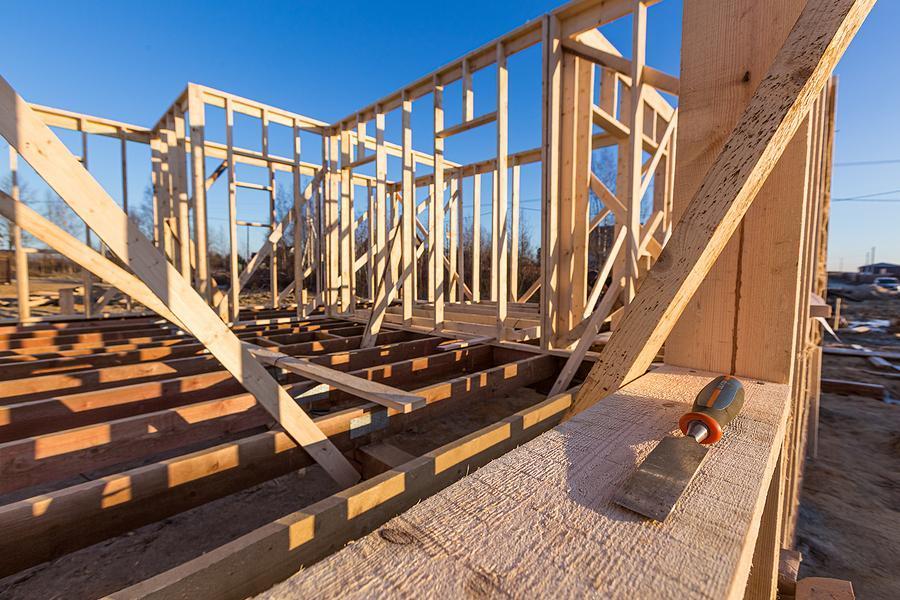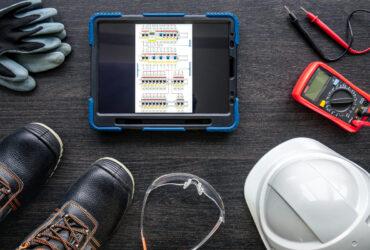Traditionally, construction workers were paid in cash, which meant following up on income tax payments was something of a headache for HMRC. The Construction Industry Scheme (CIS) formalises the way contractors and subcontractors in the construction industry to pay their income tax.
Why do I have a CIS rebate?
If you’re a subcontractor working in the construction industry, the contractor that you work for will deduct tax under the Construction Industry Scheme (CIS) each time they pay you. They declare the deductions they make through a CIS Return, and pay in onto HMRC on your behalf.
Subcontractors don’t have to register for CIS, but those who do only have 20% tax deducted from their pay. Those who aren’t registered will see 30% deducted instead. Where possible, it’s better for subcontractors to register for CIS in order to get the 20% deduction rate. It’s also possible to apply for gross payment status, where the tax deducted is nil.
Unless you earn more than £50,270 in a year, this 30% deduction is more tax than you actually owe – which means you’ve overpaid your tax bill, and HMRC need to pay you back. This is known as a CIS rebate.
How do I claim my CIS tax rebate?
If you’re a sole trader, or a partner in a partnership, you can claim your overpayment back by completing a Self Assessment tax return at the end of the tax year. The deadline for this is 31st January after the year you worked, but the earlier you do it, the sooner you get your rebate back.
If you operate as a limited company, then you can reclaim your CIS rebate when you make your payroll submission. If you don’t use a PAYE scheme to pay yourself, there are still other ways of reclaiming your rebate!
Can I increase my CIS tax rebate?
The good news is that you can further increase your CIS rebate because some of your expenses are ‘allowable’. You can claim them as CIS deductions against the tax that you’ve already paid, so the amount will be added to your rebate.
It’s why accountants always encourage sub-contractors to make sure they claim as many expenses as possible!
Obviously, they must be actual, allowable expenses. In the past we have heard of people inventing expenses to include on their own tax returns. We can’t emphasise this enough – it’s illegal to do this, and an extremely bad idea. Having said that, it’s also easy to be over cautious, missing off expenses that you’re entitled to claim back.
Which brings us nicely on to our point: Make sure you do actually claim all of the expenses you’re entitled to. For instance (and this is a common one), you may well be able to claim back expenses when you work from home. It simply involves apportioning household costs to number of hours you use your home workspace for actual work.
What are allowable expenses under CIS?
HMRC publish a complete list of the expenses that you’re allowed to claim, but in general it includes costs which relate wholly to your business, such as:
- Staff costs such as wages, employee benefits, and the National Insurance that you pay as an employer
- Vehicle costs, including fuel, parking, insurance, breakdown membership, repairs, or servicing
- Costs associated with staying away from home
- Any fees you pay for professional services, such as to your accountant or solicitor
- Subscriptions to professional bodies or unions relating to your industry or field
- Utilities
- Advertising online, newspaper and directory ads, sending out mail or samples
- Construction Industry subcontractor payments where tax hasn’t been deducted
- Maintenance repairs to your business premises, equipment, tools, or other consumables
- The cost of goods or raw materials, or production costs, for things that you sell on
What items are not allowable expenses?
One of the biggest rules when it comes to claiming tax relief on your business expenses is the ‘wholly and exclusively’ rule. You can only claim for costs which relate to your business. If there’s an overlap, you’ll need to make sure you only claim for the portion which relates to business use. For instance, if you use a mobile phone for both business and personal use, you can only claim for a proportion of your phone bill.
So, this also means that you can’t claim for anything bought for private use, personal travel, or hospitality. It also excludes things like:
- Legal fees relating to illegal actions, disputes or fines, or the purchasing of large pieces of equipment or property
- Charitable donations or payments made to clubs or political parties aren’t allowable for sole traders, but they are for limited companies.
- Overdraft, loan, or financing repayments
- Any recoverable costs relating to insurance claims
- Bad debts that aren’t included in turnover, or any debt relating to a fixed asset
- The depreciation of equipment, stock, or other goods
- Ordinary clothing even if there is a dress code (but not uniform)
- Everyday food and beverages (unless you’re staying away from home on work business)
Registering for CIS
All self-employed construction workers (as well as other trades such as carpenters, painters, and demolition experts) can apply to pay tax under the CIS scheme as long as they aren’t full-time employees of the contractor. You can check with the company to confirm your eligibility, and HMRC’s CIS page goes into more detail.
Bear in mind that some contractors won’t let you work on their site until you complete your CIS registration.
Are you due a CIS tax rebate?
Find more help with accounting and finance for your London-based business in our information centre.





Leave a Reply